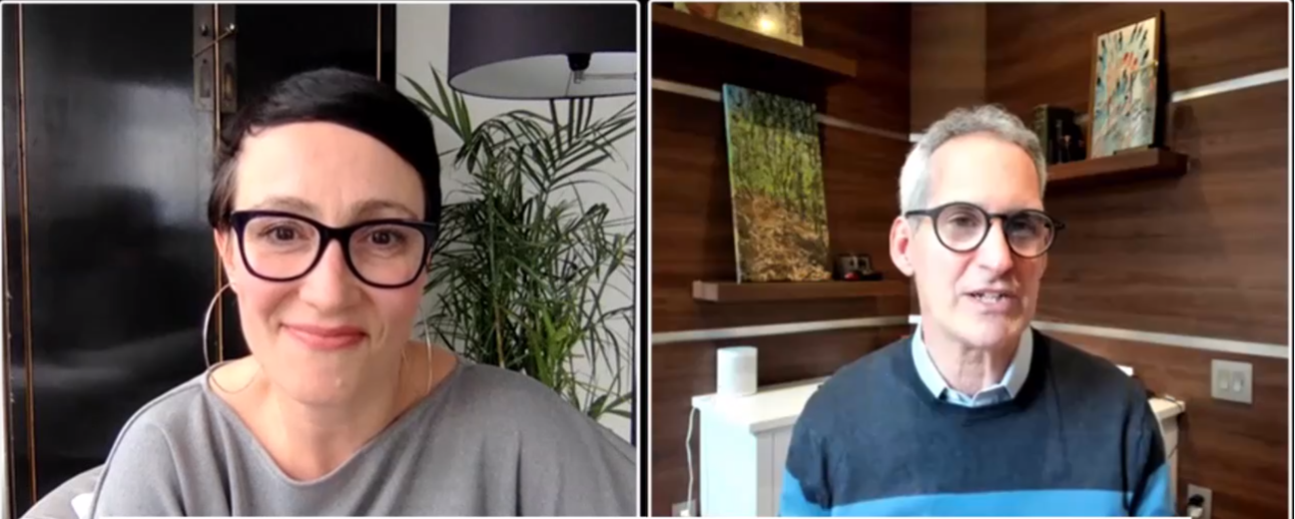Clinical Psychologist Dr. Tatijana Busic joins us in honour of CMHA Mental Health Week

This year, CMHA’s Mental Health Week is all about “getting real” and encouraging Canadians to embrace all of your emotions, especially during these difficult times, whether they are good, bad, challenging or difficult.
Rogers Chief Medical Officer, Dr. David Satok, and Dr. Tatijana Busic, a clinical psychologist and stress expert, recently teamed up for a discussion on mental health, burnout, and the best ways for us to build resilience. Here are three key takeaways from Dr. Busic’s session:
1. We need to give ourselves a break
Acknowledging that you may be feeling exhausted, stressed or like you’re languishing as result of COVID-19 is completely normal. How we’re feeling is completely normal and expected considering all that we’ve been through over the last year. Our sympathetic nervous system – the body’s “flight or flight” response to stressful situations – has been overworked, resulting in us all feeling a little stuck.
2. Taking time for ourselves and working mindfulness into our daily routines is key to avoiding burnout
‘Burnout’ has been a common word during COVID-19 – but what does it mean? Dr. Busic shared that disinterest in activities you’re normally interested in, like low motivation in your work, and an increase in unhealthy habits like binge eating or drinking, may be just some of the signs that you’re experiencing burnout. Dr. Busic suggested exercise, sleep and nutrition all play an important role in combating burnout and building resilience.
It’s also vital to stay connected with others to talk about how you are feeling, whether it be friends, family colleagues, or a mental health professional.
3. If you’re struggling with a mental illness, it’s okay
Although many of us are experiencing new mental health challenges, it’s important to not overlook deeper issues. Dr. Busic shared that feelings like depression can sometimes be a normal response to distressing situations. But when the depression transcends a specific event, bringing feelings of impairment, distress and hopelessness into all areas of your life, and hindering your daily routines, this might be caused by a deeper issue. If this is the case, Dr. Busic recommends visiting a mental health professional.
If you or someone you know is in immediate danger, please call 9-1-1 or go to your nearest hospital. If you need emotional support, help is available. You can find additional resources here.
